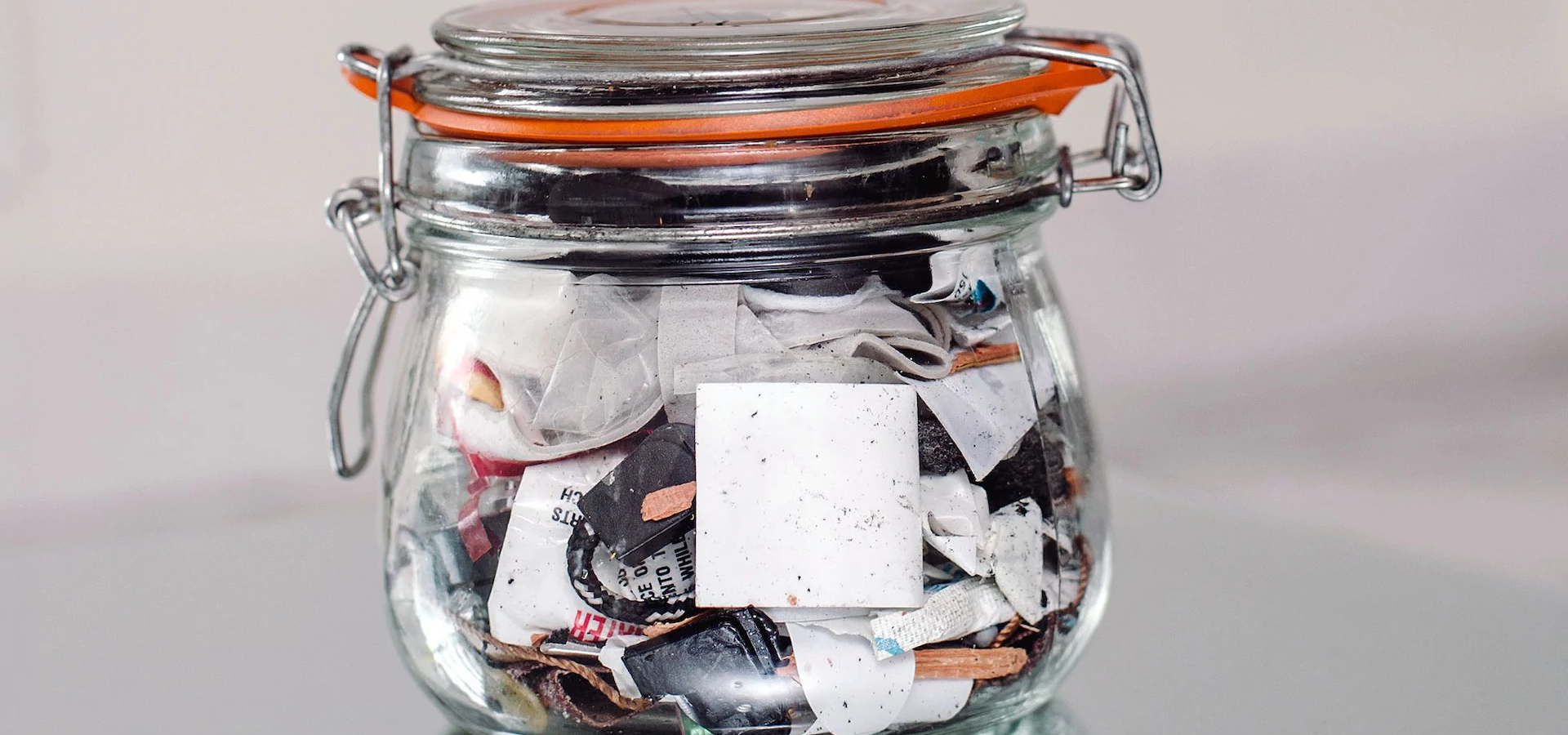
I Spoke With a Zero Waste Contributor to See How She Would Run a Conference
Béa Johnson is one of the most famous faces in the zero waste community.
She’s come to public attention over the past few years because of a jar. In that jar, she can put the entirety of her family’s waste for an entire year, which she then chronicles on her website between posts about how she manages to keep their rubbish to a bare minimum.
A little while ago, I caught up with Béa over the phone to discuss her lifestyle, and how her methods could be applied by eco-conscious event organisers, something she has familiarity with, having presented at many events herself in the past.
Here’s what she had to say:
The Origin of the Wastelessness
“In 2006, we were living outside of San Francisco stuck in a cul de sac. We got used to going into a car to do anything. We wanted to be closer to downtown so we could walk of bike and, from there, we saw the advantages of living simply. Before we moved in everything was in storage and we saw all of the things we hadn’t even missed for a full year.”
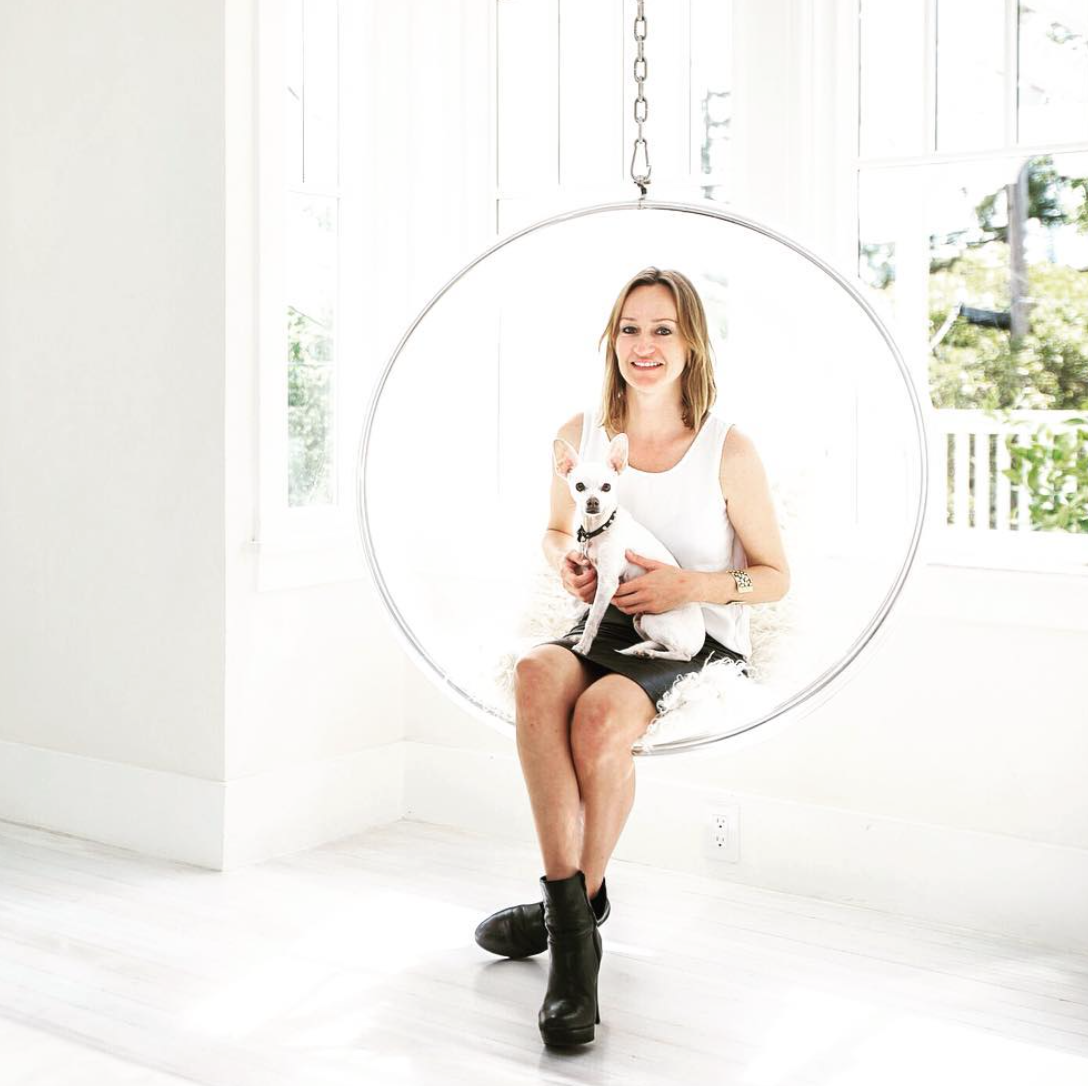
“Then we started reading books and watching documentaries on environmental issues and realised we were creating a terrible place for our children.”
The US leads CO2 emissions per capita by a distance and each American is responsible for an average of 2kg of solid waste per day, also the most in the world. Facts like that make it easy to see why an impact on sustainability for the next generation is so needed.
As such, I wondered where you could possibly start. When you take into account that almost every daily activity ends with something left over as waste, it’s hard to know which to tackle first.
Béa pointed me towards the pyramid methodology that she uses; the 5Rs:
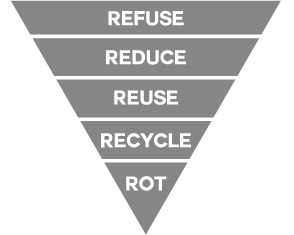
The top-down width of the tiers reflect that each step should be used less frequently than the one above it.
“We started by watching our energy consumption, water consumption, and then moved towards our waste.”
“Back then, there was no book on how to live a zero waste lifestyle. I had to Google a lot of things. I started making my own butter, cheese, bread, but that’s not sustainable.”
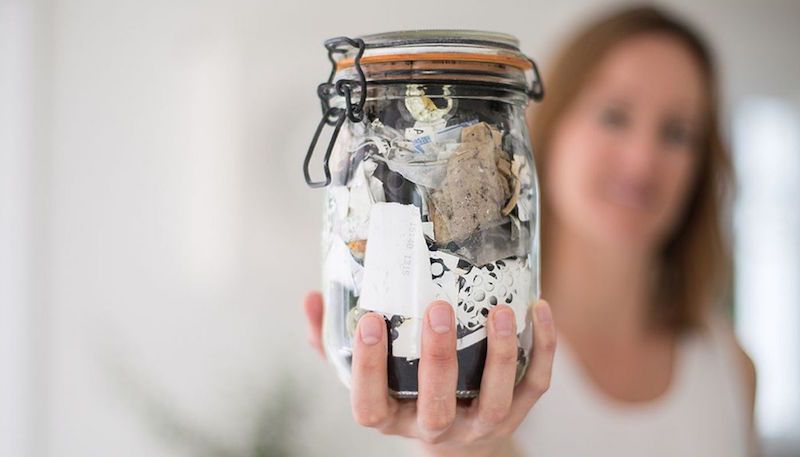
Instead of endeavouring to make everything herself, Béa advocates finding more sustainable alternatives, provided you can live with them, since a little incident:
“If you saw my talk at Google, you’ll know I used stinging nettles as a lip plumper.”
Having thankfully not died of perhaps overly natural causes as a result of this, Béa has presented on her lifestyle more than 200 times in over 30 countries since she and her family first started adjusting their lifestyle to being less wasteful. Because of this, I was thought she would be an ideal candidate to answer some questions I had about how event organisers can reduce their waste production.
If we look at one example, Oracle estimated that an event attendee at Open World produces at 6.3kg of waste each day, so I asked what impact and advice Béa has that could benefit events.
Paper or Plastic?
“When events are organised around my talks, they try to make their events as waste-free as possible.” Although, that’s unfortunately not quite the status quo.
That said, Béa did cover a few different areas where event organisers can make a direct, immediate impact on the waste produced by their attendees:
- “Instead of having a list of tickets, have it all digitised.” 40% of solid waste in the US is paper, and reducing the amount this kind of waste for a conference of 500 attendees can save over $750 and 200lbs of wood, making it quite the effective swap.
- “At the event itself, if you’re going to host a get-together with drinks or appetisers, make sure they can be eaten as finger food. But, if you want to serve chili or something, rent your plates and rent your cups. Or ask your audience to bring their own. That way you effectively get rid of single use plastic; bottles of water, straws, coffee cups.” For context (though I don’t mean to single out the United States!) the US population uses some 500 million straws every day which practically begs for Béa’s advice to become the norm.
- “In the case of business cards, when someone tries to give me their business card, I’ve always already had contact with that person! I’ve given my contact info on my slides, or I’ve emailed them already. They can talk to me directly; there’s no need.” To further prove her point, 88% of business cards that are handed out get thrown away in less than a week.
Taking the First Step
The foundation of Béa’s sustainable approach is her laser focus on saying ‘no’. And her disdain for marketers. Though she was very wholesome in conversation with me:
“At an event, we’re a target of many promotional goods. When we take them, we’re creating a demand to make more. They just add clutter to our space. You have to learn to say no, then you can stop those things from coming into your home.”
“It’s a great opportunity to learn how to say no in those kinds of environments. Free pens, free samples, business cards – you can say ‘No, thanks.’”
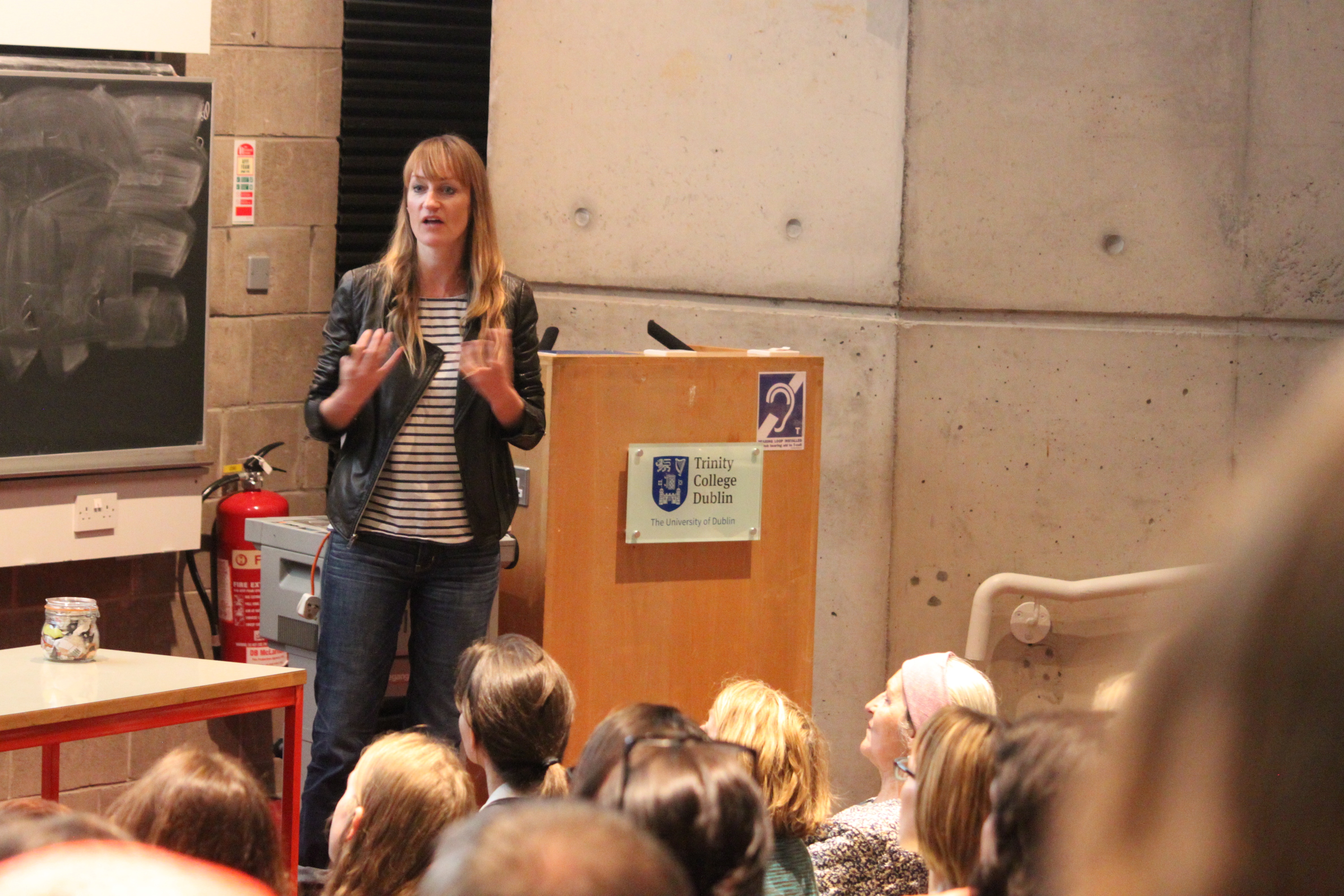
And, putting a worry I personally had to rest, she explained that there are plenty of ways to do this without being ungrateful:
“Learn to say no on the spot. You can say ‘No, thanks; I don’t need it.’ Or you can just say ‘I’m a minimalist.’”
Speaking of Waste…
With a full speaking agenda, convenience is something that a lot of high-demand presenters turn to because of a lack of time. As such, I wanted to know what changes Béa made to her routine and zero-waste practices when travelling:
“I don’t really change anything. It’s about adopting a simple lifestyle first and foremost. It’s all about simplicity. What I do take with me when I travel is a thermos with an open mouth so I can get hot or cold drinks. I travel with a cloth bag so I can buy anything on the go – bulk nuts, fruit, a sandwich or a croissant. Having these things with me allows me to eliminate waste as I go. I also have a handkerchief so that I don’t have to use paper ones.”
As well as that, all of the clothes she owns fit in a carry-on suitcase with some pieces having up to 22 different ways of wearing them, mirroring Béa’s intrinsic balance between style and function.
The Show Must Go On
But did she miss anything? With something so drastic as reducing virtually all of life’s leftovers, was there anything that she wished she could have from her previous lifestyle?
Frankly, no:
“We live in this consumerist society created by powerful people who hire powerful marketers. You’ve been duped. All that stuff is not adding to your life. It’s taking you further away from your dreams.”
“Let’s take one example: paper towels – you have to drive to the store, buy them and put them in bags, then throw them in the trunk of your car, walk them the 36 steps to your house, then store it (which takes up a lot of space). Then you have to separate the plastic, paper and cardboard, put the plastic in the trash and then go back to the store to buy it again.”
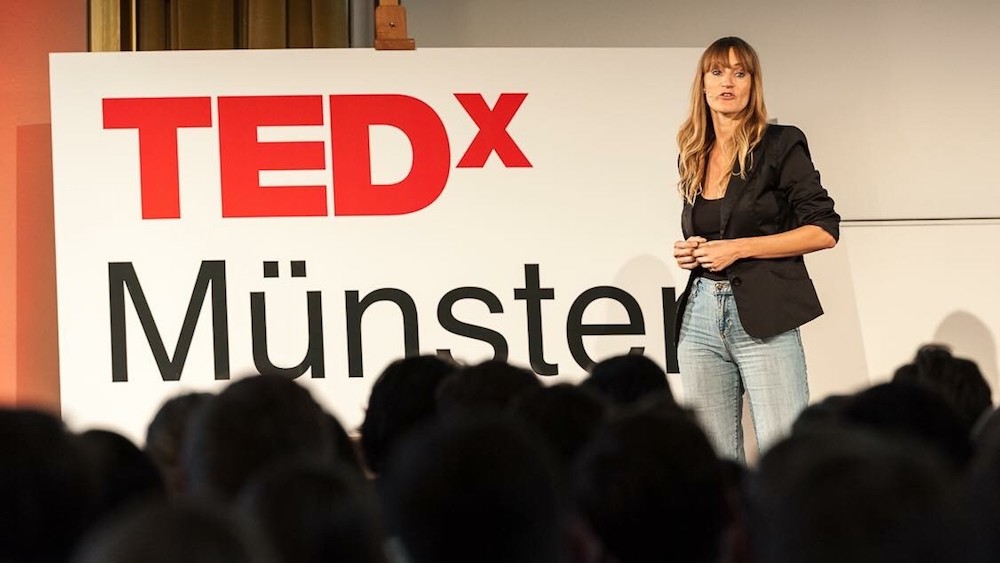
“We discovered huge money saving, and huge time saving. It’s really amazing – completely normal and automatic, once you adopt it. Your only regret is that you didn’t do it sooner.”
Thankfully the zero-waste community has changed over time from the lip-plumping nettle lovers of yore to a group of people deeply dedicated to finding enjoyable, manageable ways to preserve the earth.
For additional resources, you can peruse Béa’s best-selling book, visit her blog, or follow her on Twitter.